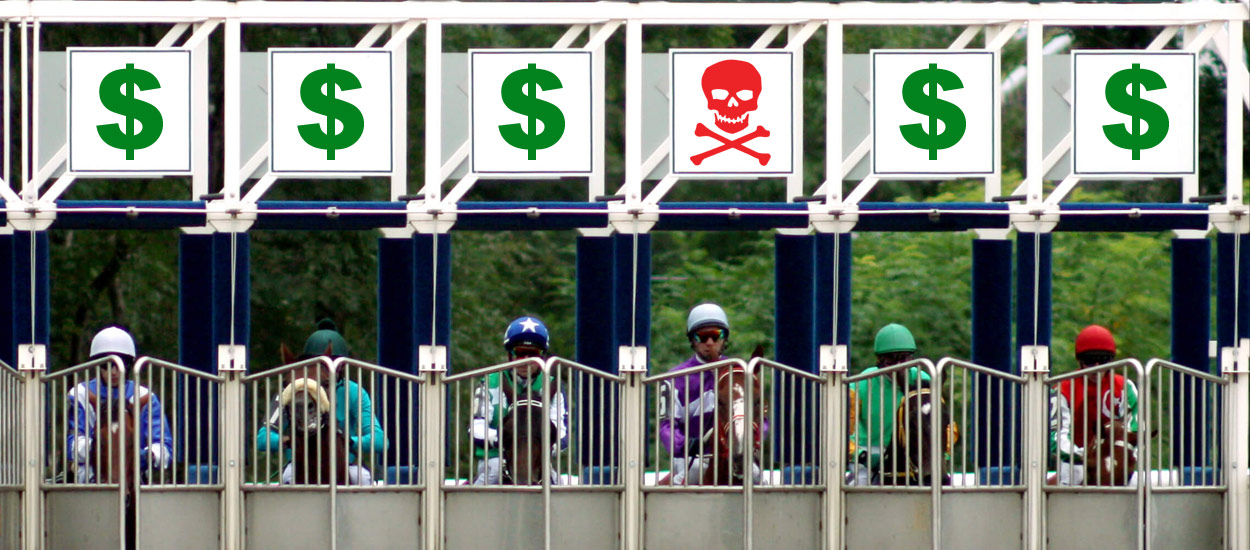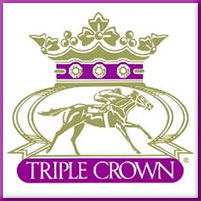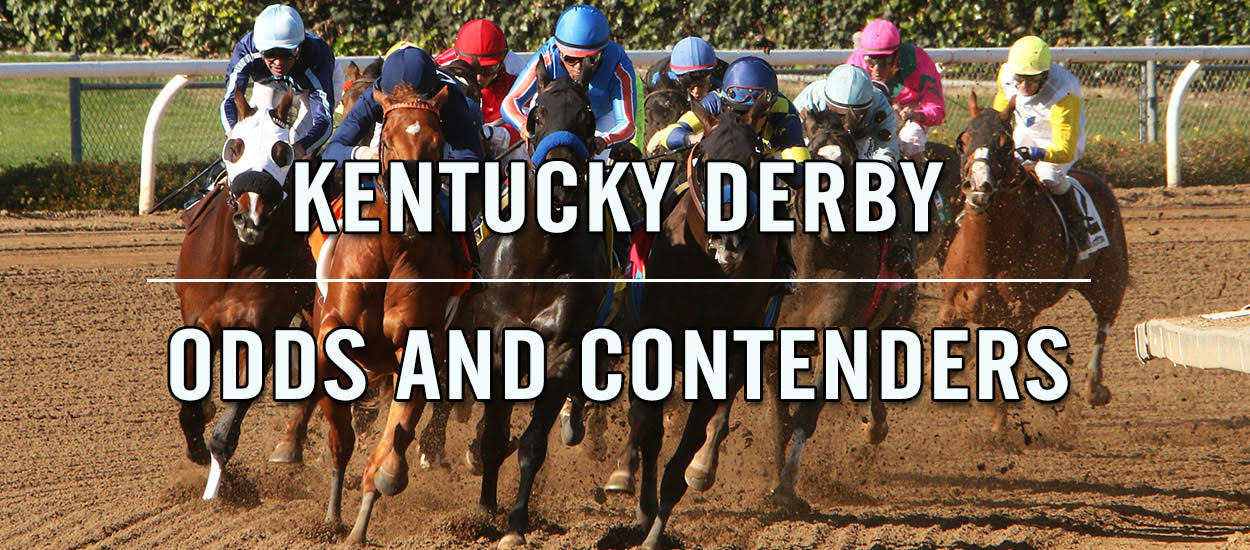A year free of controversy is needed for horse racing to survive
It seems lately that every time horse racing takes a step forward, it takes two steps back.
Horse racing was on a definite decline from the early 1990s in terms of interest until American Pharaoh won the Triple Crown in 2015. The horse's Triple Crown and subsequent win in the Breeders' Cup Classic brought some new fans to racing who had effectively ignored the sport of kings for almost two decades. Various reasons, including the feeling that it was a waste of time, that it presents little sports betting value and a feeling among young people and animal lovers that it is a cruel sport affected fans and betting handle. And there are indeed some viable reasons for each belief.
In terms of it being a waste of time, much of that has to do with demographics and changing lifestyles. Two income families have become a necessity, so there just isn’t the same amount of free family time that there was prior to the 1980s. As well, disposable income has diminished as prices for everything from food to shelter have skyrocketed and more importantly, there really isn’t much to do at a racetrack for children and families, so a trip to the track just isn’t considered family friendly. The industry has tried to change that by adding concerts, hayrides and arcades, but it is still not revered by families like a relatively cheap trip to a zoo, park, or some other activity would be. Consequently, tying up four or five hours for a day at the races is just deemed to be too time consuming and out of the question. And it’s not just families that find attending live races to be wasteful. The time between races seems to be infinite for some people, so for the sake of about 15 minutes of actual racing for a card with 10 races there is almost five hours of dead time! This is necessary to rake the track, allow jockeys to prepare for the next races, allow time for horses to saddle and warm up and of course, time for bettors to handicap and wager. But to the majority who just sit there waiting for the next race to start, it just seems like a big waste of time.
Poor Betting Value
In terms of it being bad value for bettors, the takeout on every bet between 17% and 30% depending on the wager is a valid concern. Most bettors who wager on sporting events are willing to have no more than 8% held on a wager and seeing holds of less than 5% by many sportsbooks hoping to drive up more business is not uncommon. Add to that some additional costs, like buying a program or racing form and in some instances, even parking or an entry fee for tracks without ancillary revenue like an in-house casino. Overall, the cost can be prohibitive. When it's all added up, sports bettors have to ask themselves if they’d rather put their money on a horse race or a sporting event like a football or baseball game where they get more intrinsic value. And for many bettors, especially those who did not grow up with horse racing, the answer is obvious.
Breakdowns and Euthanasia
And as for the sport being cruel, there are viable reasons to support that belief.
Horses have broken down in races since its inception and in the old days few really noticed or cared, as animal welfare was not a major concern in the 1800s to mid-1900s. But with the growth of animal rights groups and more families worried about the plight of innocent animals it has taken notice, especially after horse races started to be shown on television. There is no doubt that the increased speed demanded from horses, extra training required and decrease in times between races has resulted in more breakdowns. And some very high-profile breakdowns were on national TV and observed by both novices and horse racing regulars. The first most notable breakdown on national TV was by Ruffian in a 1975 match race against Foolish Pleasure, and her death led to a public outcry for more humane treatment of racehorses. Consequently, better therapeutics were developed along with recovery pools and other options that could save a racehorse, but in the end if a horse is badly injured there is usually no other option but euthanasia.
The first most notable breakdown on national TV was by Ruffian in a 1975 match race against Foolish Pleasure, and her death led to a public outcry for more humane treatment of racehorses. Consequently, better therapeutics were developed along with recovery pools and other options that could save a racehorse, but in the end if a horse is badly injured there is usually no other option but euthanasia.
Other noteworthy breakdowns during televised races included Go For Wand, who broke a leg while challenging Bayakoa in the 1990 Breeders Cup Distaff, Barbaro, who broke a leg in the 2007 Preakness Stakes, and Eight Belles who finished 2nd in the Kentucky Derby to Big Brown but broke both legs after crossing the finish line leading to her euthanasia on track. Add to that news about horse slaughter, including one report that Kentucky Derby winner Ferdinand was sent to a slaughterhouse in Japan in 2002, only led to more belief that the sport was cruel and that anyone who followed it or bet on it was heartless.
Drugs and Suspensions
In addition, throughout early 2010s suspensions were consistently being handed out to famous trainers who were deemed to be indifferent to the health and welfare of the animals and were willing to do anything for a win. Rick Dutrow was perhaps the most famous trainer who apparently drugged almost every successful horse he trained with winstrol (an anabolic steroid). He had 72 suspensions for doping in his career and was finally suspended for 10 years and eventually had his training license revoked after there were cries for his ouster. Other trainers also came under a lot of scrutiny as well. This not only had the animal rights people up in arms, but also handicappers who said that it makes it impossible to handicap races since they have to factor in things they have no knowledge of, like doping or even less-than-honest jockeys. And the effects were not unnoticed, as viewership and attendance at races kept declining, as did the almighty betting handle.
So American Pharaoh's Triple Crown win in 2015, followed by another Triple Crown win in 2018 by Justify, a Bob Baffert trained horse, had horse racing people excited. Betting handle and viewership slowly rose, and it seemed a relief that horse racing finally had some good news stories thanks to a superior trainer who didn't have to cheat to win. Or so it was thought. The industry took several giant steps back in 2019 as numerous incidents took place. The year started with multiple breakdowns and deaths at Santa Anita racetrack, which led to the track shutting down, meetings throughout California cancelled and the Stronach Group announcing new measures, including a ban on race day use of Lasix to try and combat the issue. This was followed up by a very controversial Kentucky Derby where Maximum Security won, but was disqualified for interference in the stretch, although most horse viewers believed the disqualification was unjustified and the winner was an extreme longshot making few bettors happy. And later in the year, the New York Times ran an article showing that Justify was indeed drugged by Bob Baffert with scopolamine, a banned substance, bringing Baffert's reputation as clean into dispute.
The industry took several giant steps back in 2019 as numerous incidents took place. The year started with multiple breakdowns and deaths at Santa Anita racetrack, which led to the track shutting down, meetings throughout California cancelled and the Stronach Group announcing new measures, including a ban on race day use of Lasix to try and combat the issue. This was followed up by a very controversial Kentucky Derby where Maximum Security won, but was disqualified for interference in the stretch, although most horse viewers believed the disqualification was unjustified and the winner was an extreme longshot making few bettors happy. And later in the year, the New York Times ran an article showing that Justify was indeed drugged by Bob Baffert with scopolamine, a banned substance, bringing Baffert's reputation as clean into dispute.
2020 was an even worse year for horse racing as the year began with Jason Servis, Maximum Security's trainer, being indicted along with 27 other people by federal authorities on charges related to manufacturing, procuring, distributing and administering illegal substances to racehorses. It was also revealed in a very disturbing report that not only did Servis and fellow trainer Jorge Navarro drug many of the horses they owned and trained, but they also worked quickly to dispose of the bodies of dead horses rather than reporting the deaths to authorities, hoping it would cover up their drug use. To make matters worse, Bob Baffert who seemed to be clean until the New York Times report about Justify, was found to have drugged Gamine and Charlatan with lidocaine in races in May 2020, Merneith in a July 2020 race and Gamine again in October after being found with betamethasone in her system.
But as bad as 2020 was due to all the discovered drug use, there was one upside that lifted horse racing handle to near record levels. The COVID-19 pandemic shut down all sports, leaving horse racing as the only option for wagering. It was the last sport to close operations and the first to reopen. And some tracks like Fonner Park in Nebraska and Will Rogers Racetrack in Oklahoma never stopped operating. Consequently, some sports bettors who were anxious for anything real to bet on started to wager on horse racing. And the Kentucky Derby, pushed back to Labor Day in September, saw a large TV viewership and handle even though fans were barred from attending. So as bad as 2020 was there was still some potential upside.
And then came 2021. Bob Baffert, already under scrutiny for doping won the Kentucky Derby with Medina Spirit at 12-1 odds. The excitement was shortly lived, however, as Medina’s Spirit was found with betamethasone in his system. Baffert tried to wave off the findings suggesting the amount found was insignificant, then tried to blame the positive result on someone in the barn who he said took steroids and urinated on Medina’s Spirit’s hay before finally admitting it was in an ointment he applied to the horse. Baffert was banned by the New York Racing Association making him ineligible to run horses in the Belmont Stakes and then was given a multi-year ban by the Kentucky Racing Association. Medina Spirit was eventually disqualified and died of a heart attack after a workout at Santa Anita Park in December capping a disastrous year for horse racing. So, as we enter Triple Crown season again, horse racing desperately needs a year without positive drug tests, controversial rulings and most importantly horse deaths. It’s not too late for the industry to still turn around but if things don’t change, the industry in North America could be on its last legs.
So, as we enter Triple Crown season again, horse racing desperately needs a year without positive drug tests, controversial rulings and most importantly horse deaths. It’s not too late for the industry to still turn around but if things don’t change, the industry in North America could be on its last legs.
Sports betting is becoming legalized in almost every state and province in the United States and Canada, and most sports bettors are already looking to sports other than horse racing to place their money, if they haven't already done so. Most states and provinces do not allow horse racing to be offered as part of online sports betting options (it has to be done at a racetrack or a horse racing website), so the industry can’t even attract bettors via that option, and most young people and animal rights groups just continue to shake their heads at anyone who views horse racing as a fun way to place their wagers. Long gone are the glory years of Seabiscuit, Secretariat and Seattle Slew and horse racing needs to win back both trust and interest. The fact that Bob Baffert trained horses have been banned from this year's Kentucky Derby is a good start, but unless the industry can put together two or three good years without any controversy and preferably create a feel-good story like happened in 2015 with American Pharaoh, it may be too little too late.
Read insights from Hartley Henderson every week here at OSGA and check out Hartley's RUMOR MILL!








































